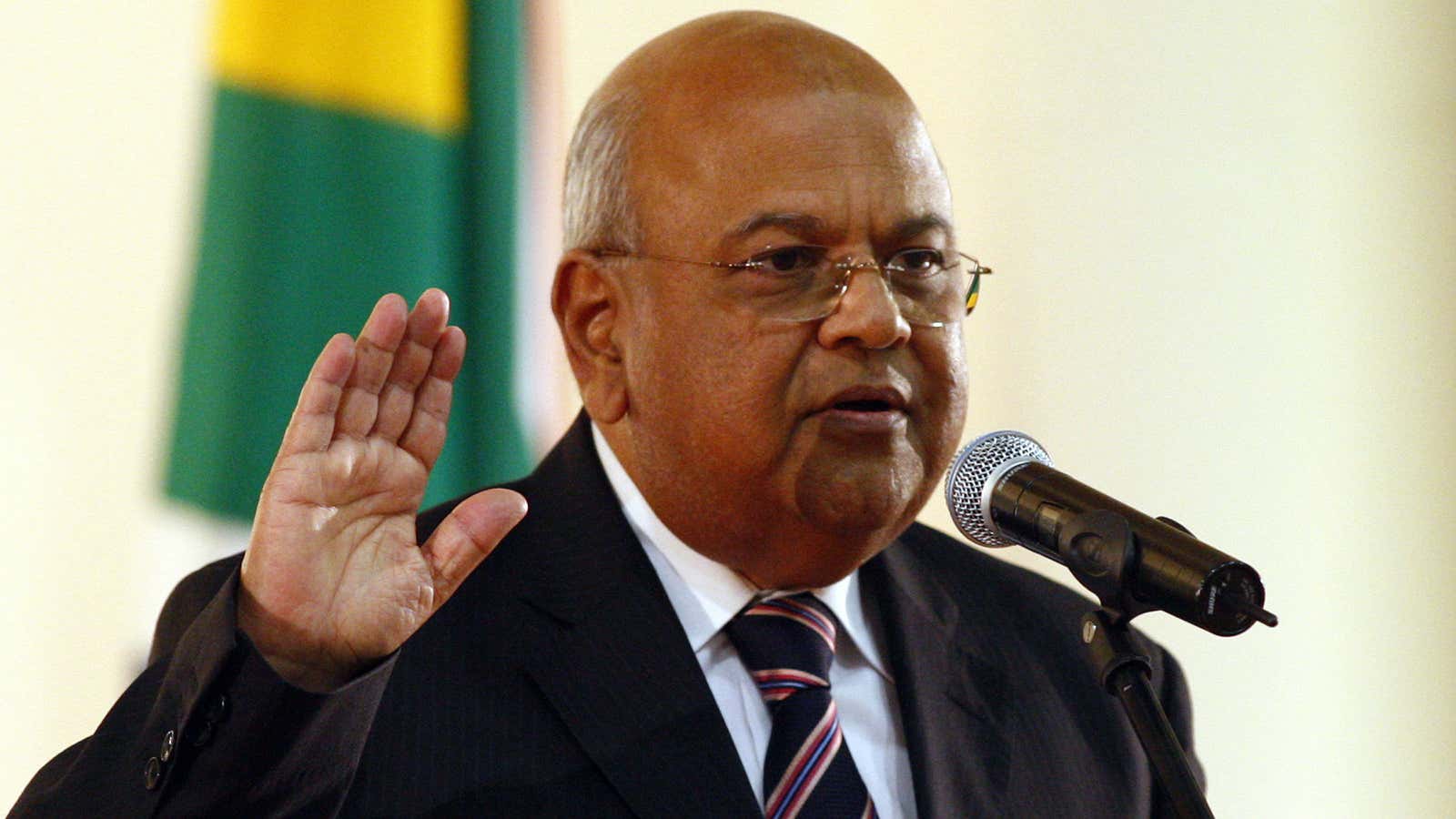Pravin Gordhan, South Africa’s new finance minister, is on a mission to reassure investors that the country is serious about reigning in public spending.
In his first move as finance chief, he has rejected a request from South African Airways (SAA), the country’s beleaguered airline, to restructure its deal with Airbus over the buying of new planes, and instead ordered the company to lease the aircrafts. The deadline to finalize the transaction is Dec. 28.
The move will save the government over $100 million dollars and demonstrates the kind of frugality that investors want to see from Africa’s second largest economy. Over the past month, credit agencies have downgraded the country’s rating to only a level above junk status in part due to concerns over ballooning public debt.
The decision over what to do with SAA was Gordhan’s first big test of his new tenure at the Treasury following a roller coaster three weeks that saw the department lose two finance chiefs in the space of five days.
“The announcement signals a small but significant victory for rational economic policy-making,” Anne Frühauf, senior vice president for consultancy Teneo Intelligence, wrote in a note to clients.
It has been a tumultuous month for South Africa. President Jacob Zuma abruptly fired one of Gordhan’s predecessors on Dec. 9, the widely respected Nhlanhla Nene, partly due to his refusal to rubber-stamp the SAA’s request. His appointment of the relative unknown lawmaker David van Rooyen, who had little governing experience, spooked investors and the markets.
But intense pressure from ruling ANC party leaders and the private sector forced Zuma to reverse his position and bring back Gordhan, who served as finance chief between 2009-2014 to great acclaim. While the markets stabilized following the news, there were still questions as to how Gordhan would deal with the outstanding spending decisions that forced out Nene.
By keeping in place Nene’s ruling over the SAA deal, Gordhan has gone some way towards restoring the Treasury’s credibility over the country’s economic management. But going forward, there are still concerns over whether he will be able to resist political pressure over key spending decisions.
“Despite an auspicious start, Gordhan faces an uphill struggle to restore market confidence and safeguard investment grade ratings after a week of Treasury turmoil,” Frühauf says. “The returned finance minister will have to tackle a string of challenges,” including a decision on the nuclear deal, cutting down of university tuition fees and the funding of a national health service.
